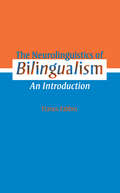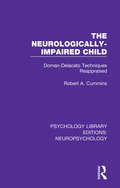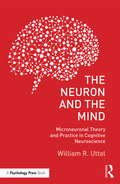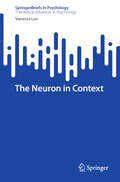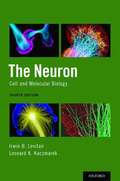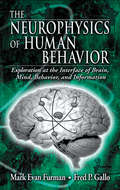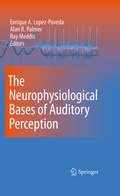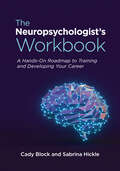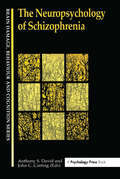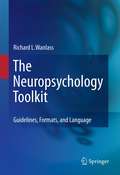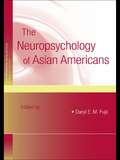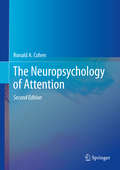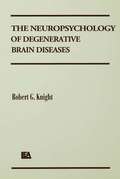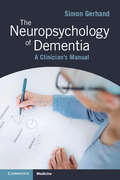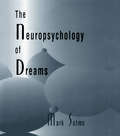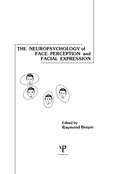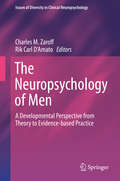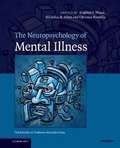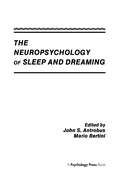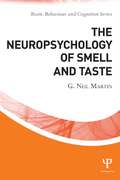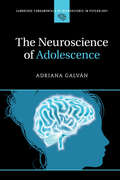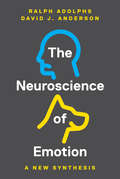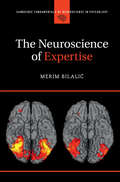- Table View
- List View
The Neurolinguistics of Bilingualism: An Introduction
by Franco FabbroThis book introduces the reader to both neurolinguistics per se and the neuropsychological aspects of bilingualism. Neurolinguistics may roughly be defined as a subset of neuropsychology, namely the study of the representation and processing of language in the brain. To this effect, the first chapters of the book focus on the basic neuropsychology of language processing and acquisition. The second half of the book addresses the issues of cerebral representation and processing of language in bi-or multilingual subjects. All aspects are systematically dealt with, namely the definition of bilingualism; an analysis of all the issues related to bilingual aphasia, i.e. patterns of recovery of the patients' carious languages in diverse population; an investigation of the methodologies used in the study of the neuropsychological aspects of the various linguistic functions, such as comprehension, production and translation; and lastly, the issues of cerebral lateralization and neuroanatomical localization of the numerous cortical and subcortical structures subserving the various language system components in multilingual subjects. It is an excellent introduction to both the neuropsychology of language and the phenomena related to bilingualism. This book will be of particular interest to students of language therapy, aphasiology, applied psycholinguistics, neurolinguistics and, in general, to students of medicine who wish to become more knowledgeable about the specific needs of patients in a multilingual society.
The Neurologically-Impaired Child: Doman-Delacato Techniques Reappraised (Psychology Library Editions: Neuropsychology #4)
by Robert A. CumminsFor the 25 years before publication a form of therapy known as the ‘Doman-Delacato Techniques’ had been applied to children with disabilities. The therapy originated from the work of Glen Doman and Carl Delacato who established the Institutes for the Achievement of Human Potential in Philadelphia. The institutes claim to be able to treat a wide range of disabilities, and their best known technique is called ‘Patterning’ and is prescribed for children who have no capacity for voluntary movement. Yet many professional bodies and associations have denounced the approach as overly-expensive, ineffective, creating false hopes, being destructive to family life and based on false theoretical assumptions. Originally published in 1988, this book was the first to offer a detailed analysis and critique of the Doman-Delacato approach. The author draws on data from evolution, neuroanatomy and neurophysiology to challenge its theoretical assumptions. He shows that there is no sound scientific basis to the techniques. Any improvements in a child's condition can be attributed to the increased energy and attention given to that child, rather than the content of the programme. At the same time parents become emotionally ransomed and deluded by false expectations. Written in a style that will be accessible to non-specialists, the book is an important work for both parents and professionals concerned with the welfare of neurologically-impaired children.
The Neuron and the Mind: Microneuronal Theory and Practice in Cognitive Neuroscience
by William R. UttalThis book, a companion to William R. Uttal’s earlier work on macrotheories theories of mind-brain relationships, reviews another set of theories—those based on microneuronal measurements. Microneural theories maintain the integrity of individual neurons either in isolation or as participants in the great neuronal networks that make up the physical brain. Despite an almost universal acceptance by cognitive neuroscientists that the intangible mind must, in some way, be encoded by network states, Uttal shows that the problem of how the transformation occurs is not yet supported by empirical research findings at the micro as well as at the macro levels of analysis. Theories of the neuronal network survive more as metaphors than as robust explanations. This book also places special emphasis on the technological developments that stimulate these metaphors. A major conclusion drawn in this book is that it is not at all certain that the mind-brain problem is solvable in the sense that many other grand scientific problems are.
The Neuron in Context (SpringerBriefs in Psychology)
by Vanessa LuxNeuroscience has largely abandoned its localizationist and mechanistic framework of the 20th century. The plastic, embodied, and network character of our nervous system is widely acknowledged and systems theory approaches to consciousness dominate the field. However, the underlying neuron theory has not changed. The neuron doctrine, conceptualizing the single neuron as atomistic, one-directional source of neural function, still provides the template for our understanding of these basic elements of our nervous system and the material foundation of consciousness. Yet, the single neuron does not exist as an isolated unit. It is embedded within multiple cellular, structural, and functional contexts, and highly depends on them for its development, neural activity, and survival. The book discusses the constraints of the neuron doctrine and its pragmatic reductionism in the light of the growing knowledge about the brain’s connectivity, plasticity, and systemic and embodied nature.To overcome these constraints, the author argues for a new neuron theory, depicting the neuron as bidirectional hub which is at the same time source and product of neural function. This bidirectionality is further characterized by spatial and time dimensions, placing the neuron within a multi-level pathway model of psychobiological development from the perspective of Developmental Embodiment Research. Furthermore, the author discusses the potential of neuroepigenetic markers to characterize the neuron and its range of plasticity within this developmental perspective.With its focus on neuroepigenetics, the book addresses a knowledge gap in the current study of the neural foundations of psychological functions. The multi-level and bidirectional perspective is already realized in approaches coming from developmental systems theory, which model neural function at the connectome level, and it also fits with approaches investigating feedback loops underlying neural activity at the single cell level. At both these levels, the spatial and the time dimensions are well characterized, either as changing connectivity patterns across different age groups, or as synaptic feedback loops underlying neural activation patterns. However, for the intermediate level of small neural populations, which is currently the main target for studies investigating the neural basis of specific psychological functions, this characterization turned out to be more challenging. Multi-cell recordings have provided a first glimpse into the complex interaction patterns of these small neural networks, but they are limited to the recording period and do not provide information about the long-term developmental and activation history. Here, neuroepigenetic markers could be of use. Due to their relative stability and, at the same time, environmental sensitivity, neuroepigenetic markers represent an additional layer of information in which, to a certain degree, the cell’s metabolic and activation history is aggregated over time. This information is available at the single neuron level but could also be modeled as aggregated information for small neural populations and the supporting cellular context. Looking through this “epigenetic lens” adds to our understanding of the neuron as bidirectional hub by emphasizing the molecular correlates of functional stabilization and their contextual prerequisites. These prerequisites reach from the immediate cellular context to the social-cultural contexts which shape the culturally specific modes of acquisition of psychological functions throughout the lifespan. Accounting for this multilayered contextuality of the neuron and its function affords to repositions the relationship between neuroscience and psychology in their joint effort to unravel the material basis of consciousness. This provides new challenges but also new perspectives for theoretical psychology. The book presents these current developments and debates to researchers, graduate students, and interested professionals and practitioners working in neuroscience, epigeneti
The Neuron: Cell And Molecular Biology
by Leonard K. Kaczmarek Irwin B. LevitanThe Fourth Edition of The Neuron provides a comprehensive first course in the cell and molecular biology of nerve cells. <p><p>The book begins with properties of the many newly discovered ion channels that have emerged through mapping of the genome. These channels shape the way a single neuron generates varied patterns of electrical activity. Covered next are the molecular mechanisms that convert electrical activity into the secretion of neurotransmitter hormones at synaptic junctions between neurons. The following section examines the biochemical pathways that are linked to the action of neurotransmitters and that can alter the cellular properties of neurons or sensory cells that transduce information from the outside world into the electrical code used by neurons. The final section reviews our rapidly expanding knowledge of the molecular factors that induce an undifferentiated cell to become a neuron, and then guide it to form appropriate synaptic connections with its partners. This section also focuses on the role of ongoing experience and activity in shaping these connections, and finishes with an account of mechanisms thought to underlie the phenomena of learning and memory. <p><p>The book contains scores of color figures and fully updated chapters; online content packaged exclusively with the Fourth Edition includes detailed animations of neural processes, in-depth supplemental reading, and additional full-color figures and tables.
The Neurophysics of Human Behavior: Explorations at the Interface of Brain, Mind, Behavior, and Information
by Fred P. Gallo Mark E. FurmanHow do brain, mind, matter, and energy interact? Can we create a comprehensive model of the mind and brain, their interactions, and their influences? Synthesizing research from neuroscience, physics, biology, systems science, information science, psychology, and the cognitive sciences, The Neurophysics of Human Behavior advances a unified theory of
The Neurophysiological Bases of Auditory Perception
by Ray Meddis Enrique Lopez-Poveda Alan R. PalmerThe International Symposium on Hearing is a triennial, highly-prestigious event where world-class scientists present and discuss the most recent advances in the field of hearing research. The symposium focuses on the relationship between auditory physiology, psychoacoustics, and computational modeling. Presented papers range from basic to applied research, and are published in book format. The books from past editions have a large demand by neuroscientists, otolaryngologists, psychologists, and artificial intelligence researchers. This meeting is highly special in that every paper is a plenary session given by invitation by a key, world-class auditory scientist. There are no poster sessions. The editors will have to choose the best 60 papers from approximately 80 submitted abstracts. Priority will be given to hot topics and to papers showing significant advances (this is almost guaranteed, anyhow, by the quality of the speakers). Papers will be submitted by invitation only and invitations will be sent only to the most-significant auditory scientists at present. Furthermore, published papers can be regarded as peer-reviewed because they will be accompanied (in print) by a full discussion between the authors and other conference attendants. This format is identical to that of preceding editions of this symposium and has proven highly successful. A full list of past conference books is given below. We will not know the list of chapters until approximately November 2008, that is 6 months before the conference (May 2009). You can get an idea of the type and format of the chapters by having a look at the books for the last two symposium editions, which were published by Springer.
The Neuropsychologist's Workbook: A Hands-On Roadmap to Training and Developing Your Career
by Cady Block Sabrina Hickle PhDUnlock your career in neuropsychology with this practical workbook for aspiring professionals. This is a hands-on, practical workbook to accompany The Neuropsychologist&’s Roadmap: A Training and Career Guide. This workbook covers the training journey in neuropsychology, as well as its foundational and functional competencies. The workbook allows readers to access additional information, benefit from even more advice, and engage interactively with activities such as self-assessments, checklists, free writing exercises, and more. These activities help the reader reflect on and articulate personal values and goals to help guide them through their own journey. Using this workbook will help readers recognize their own strengths and weaknesses, so they know what they need to work on when considering the factors impacting entry into (and success within) graduate school, internship, fellowship, and the first job. This is a valuable resource for anyone considering a career in neuropsychology or those who train, supervisor, or mentor students in this field.
The Neuropsychology Of Schizophrenia (Brain, Behaviour and Cognition)
by Anthony S. David John C. CuttingSchizophrenia is being increasingly viewed as a neurological disorder. The Neuropsychology of Schizophrenia addresses the key questions in modern schizophrenia research. How do abnormalities of the brain produce the characteristic signs and symptoms of this most severe and mysterious mental malady? Where are these abnormalities? How do they develop? How can we detect them? What clinical and cognitive effects do they have? This new book is the first of its kind to tackle these questions in a systematic way from a number of allied perspectives: from phenomenology to physiology, animal behaviour to metacognition and from PET scans to paper and pencil tests. A number of authors from the United Kingdom and the United States have made contributions; all are acknowledged experts in the field. The chapters each contain a concise review of the particular topic, empirical data and also a theoretical overview. The Neuropsychology of Schizophrenia will be required reading for all serious students of schizophrenia from both medical and psychology backgrounds.
The Neuropsychology Toolkit
by Richard L. WanlassThis book provides information, guidelines, and materials to help future neuropsychology supervisees identify, understand, and avoid some of these problems and pitfalls. Also included are a neuropsychological questionnaire, short- and long-report formats, and sample statements that can be used to help with wording sections of the report that are particularly challenging to write.
The Neuropsychology of Asian Americans (Studies on Neuropsychology, Neurology and Cognition)
by Daryl E. M. FujiiThis volume is the first comprehensive resource to assist neuropsychologists to provide culturally competent services to Asian Americans. It highlights pertinent historical socio-cultural characteristics of the largest Asian American ethnic groups, which helps to conceptualize presentation, provide an optimal environment for test administration, interpret tests within a cultural context, and offer culturally sensitive feedback and recommendations. In addition, the volume gives a summary of the available neuropsychological literature for each Asian American ethnic group, recommendations for testing, and illustrative case samples. The second purpose of the volume is to provide a glimpse of how neuropsychology is currently practiced in different Asian countries, by reviewing the neuropsychological literature and by listing the available resources. This information gives valuable insights to neuropsychologists working with Asian communities throughout the world. Neuropsychology of Asian Americans is an essential resource for clinical neuropsychologists and school psychologists who perform neuropsychological services to Asians. It is also an important resource for academic neuropsychologists and students with Asians in their sample, as cultural variables may have moderating effects on data that information in this book helps to elucidate.
The Neuropsychology of Attention
by Ronald A. CohenIt has been 15 years since the original publication of Neuropsychology of Attention. At the time of its publication, attention was a construct that had long been of theoretical interest in the field of psychology and was receiving increased research by cognitive scientists. Yet, attention was typically viewed as a nuisance variable; a factor that needed to be accounted for when assessing brain function, but of limited importance in its own right. There is a need for a new edition of this book within Neuropsychology to present an updated and integrated review of what is know about attention, the disorders that affect it, and approaches to its clinical assessment and treatment. Such a book will provide perspectives for experimental neuropsychological study of attention and also provide clinicians with insights on how to approach this neuropsychological domain.
The Neuropsychology of Degenerative Brain Diseases
by Robert G. KnightThis volume utilizes various neurological diseases as its organizing principle, focusing specifically on their personal, social, and cognitive consequences. In so doing, it provides neuropsychologists, clinical psychologists, and those in related disciplines with an accessible survey of the available research on the psychological functioning of patients with the various disorders. Each chapter consists of a background review of the major features of one of the diseases, including symptom pattern, neuroanatomical bases, neuropathology, genetic factors, and epidemiology. Finally, the psychological and cognitive deficits established by research are reviewed, and their practical implications are discussed.
The Neuropsychology of Dementia: A Clinician's Manual
by Simon GerhandAn up-to-date clinical guide for healthcare professionals on the assessment, diagnosis and management of dementia and mild cognitive impairment (MCI), including the role played by neuropsychology in the diagnostic process. Written in an accessible style, it provides a reference book for qualified professionals and a valuable resource for students and trainees working in dementia services. The book covers the diagnosis and management of the most common forms of dementia, and some rarer types, and the latest advances in diagnostic technology and current and future treatment options. It explores non-pharmacological interventions for cognitive impairment and preventative measures to reduce the risk of developing dementia. Featuring the essential background information required by all clinicians working in the field, alongside a review of recent research and developments in the field. With an emphasis on the links between theory and practice, this is a must-read manual for clinicians working in memory clinics.
The Neuropsychology of Dreams: A Clinico-anatomical Study (Institute for Research in Behavioral Neuroscience Series)
by Mark SolmsIn this book, Mark Solms chronicles a fascinating effort to systematically apply the clinico-anatomical method to the study of dreams. The purpose of the effort was to place disorders of dreaming on an equivalent footing with those of other higher mental functions such as the aphasias, apraxias, and agnosias. Modern knowledge of the neurological organization of human mental functions was grounded upon systematic clinico-anatomical investigations of these functions under neuropathological conditions. It therefore seemed reasonable to assume that equivalent research into dreaming would provide analogous insights into the cerebral organization of this important but neglected function. Accordingly, the main thrust of the study was to identify changes in dreaming that are systematically associated with focal cerebral pathology and to describe the clinical and anatomical characteristics of those changes. The goal, in short, was to establish a nosology of dream disorders with neuropathological significance. Unless dreaming turned out to be organized in a fundamentally different way than other mental functions, there was every reason to expect that this research would cast light on the cerebral organization of the normal dream process.
The Neuropsychology of Face Perception and Facial Expression (Neuropsychology and Neurolinguistics Series)
by Raymond BruyerThis book is the first to offer an overview of the increasingly studied field of face perception. Experimental and pathological dissociation methods are used to understand both the precise cognitive mechanisms and the cerebral functions involved in face perception. Three main areas of investigation are discussed: face processing after brain damage; lateral differences for face processing in normals; neuropsychological studies on facial expressions.
The Neuropsychology of High-level Vision: Collected Tutorial Essays (Carnegie Mellon Symposia on Cognition Series)
by Martha J. Farah Graham RatcliffThis book provides a state-of-the-art review of high-level vision and the brain. Topics covered include object representation and recognition, category-specific visual knowledge, perceptual processes in reading, top-down processes in vision -- including attention and mental imagery -- and the relations between vision and conscious awareness. Each chapter includes a tutorial overview emphasizing the current state of knowledge and outstanding theoretical issues in the authors' area of research, along with a more in-depth report of an illustrative research project in the same area. The editors and contributors to this volume are among the most respected figures in the field of neuropsychology and perception, making the work presented here a standard-setting text and reference in that area.
The Neuropsychology of Men
by Rik Carl D'Amato Charles M. ZaroffThis timely text examines normative and pathological brain/behavior connections across the male lifespan, and how these findings can best inform research, intervention, and prevention. It spotlights possible etiologies for male-dominated pathology, including academic deficits and disorders relating to violence, as well as identifying men's psychological resilience and vulnerabilities throughout life. Clinical and social issues are intricately linked here, particularly in areas such as substance abuse, emotion processing, and sequelae of brain trauma. In these ways, the text moves on from the simplistic view of males as the standard in psychological studies while respecting complicated questions about biology and environment that have yet to be resolved. Since the inception of psychology, much research has focused specifically on men but few studies have offered distinctive interventions developed to help this unique male population. This volume fills the chasm left from many seminal studies. Among the featured topics: · Imaging and development: relevant findings in males. · Understanding the neuropsychology of autism spectrum disorders in men. · Understanding disorders of defiance, aggression, and violence in males. · Serving men with traumatic brain injuries. · Men at risk: special education and incarceration. · The neuropsychological basis of emotion and social cognition in men. The Neuropsychology of Men offers neuropsychologists, clinical psychologists, and rehabilitation specialists an evidence-based framework for understanding male-specific cognitive and behavioral trends in the normative population, and for identifying and addressing challenges in boys and men outside the norm.
The Neuropsychology of Mental Illness
by Stephen J. Wood Nicholas B. Allen Christos PantelisIt is widely accepted that most psychiatric disorders are associated with cognitive impairment and that neuropsychological approaches can help unravel the mechanisms underlying brain function and help us develop a better understanding of these disorders. In this book, a panel of the world's leading experts describe the development of neuropsychological approaches to the investigation, description, measurement and management of a wide range of mental illnesses. Part One explains the rationale for examining neuropsychological processes within clinical disorders, leading into Part Two summarizing and critiquing the methodological approaches to study. Part Three covers each of the major psychiatric disorders and provides a summary of the neuropsychological findings for each condition. The final section brings together the perspectives of neuroscientists, psychiatrists and philosophers. Essential reading for all those studying the healthy as well as the disordered brain, The Neuropsychology of Mental Illness will appeal to specialists from the fields of mental health, psychology, clinical neuroscience and philosophy.
The Neuropsychology of Sleep and Dreaming
by John S. Antrobus Mario BertiniThis volume describes how the conceptual and technical sophistication of contemporary cognitive and neuroscientific fields has enhanced the neurocognitive understanding of dreaming sleep. Because it is the only naturally-occurring state in which the active brain produces elaborate cognitive processes in the absence of sensory input, the study of dreaming offers a unique cognitive and neurophysiological view of the production of higher cognitive processes. The theory and research included is driven by the search for the most direct relationships linking the neurophysiological characteristics of sleepers to their concurrent cognitive experiences. The search is organized around three sets of theoretical models and the three classes of neurocognitive relationships upon which they are based. The contributions to this volume demonstrate that the field has begun to move in new directions opened up by the rapid advances in contemporary cognitive science, neuropsychology, and neurophysiology.
The Neuropsychology of Smell and Taste (Brain, Behaviour and Cognition)
by G. Neil MartinSmell and taste are our most misunderstood senses. Given a choice between losing our sense of smell and taste, or our senses of sight and hearing, most people nominate the former, rather than the latter. Yet our sense of smell and taste has the power to stir up memories, alter our mood and even influence our behaviour. In The Neuropsychology of Smell and Taste, Neil Martin provides a comprehensive, critical analysis of the role of the brain in gustation and olfaction. In his accessible and characteristic style he shows why our sense of smell and taste do not simply perform basic and intermittent functions, but lie at the very centre of our perception of the world around us. Through an exploration of the physiology, anatomy and neuropsychology of the senses; the neurophysiological causes of smell and taste disorders, and their function in physical and mental illness, Neil Martin provides an accessible and up-to-date overview of the processes of gustation and olfaction. The Neuropsychology of Smell and Taste provides a state-of-the-art overview of current research in olfactory and gustatory perception. With sections describing the effect of odour and taste on our behaviour, and evaluating the contribution current neuroimaging technology has made to our understanding of the senses, the book will be of interest to researchers and students of neuropsychology and neuroscience, and anybody with an interest in olfaction and gustation.
The Neuroscience of Adolescence (Cambridge Fundamentals of Neuroscience in Psychology)
by Adriana GalvánAs scientific inquiry and public interest in the adolescent brain grows, so too does the need for an accessible textbook that communicates the growing research on this topic. The Neuroscience of Adolescence is a comprehensive educational tool for developmental cognitive neuroscience students at all levels as it details the varying elements that shape the adolescent brain. Historical notions of adolescence have focused on the significant hormonal changes that occur as one transitions from childhood to adolescence, but new research has revealed a more nuanced picture that helps inform our understanding of how the brain functions across the lifespan. By emphasizing the biological and neurobiological changes that occur during adolescence, this book gives students a holistic understanding of this developmental window and uniquely discusses the policy implications of neuroscience research on the lives of young people today. Provides a clear introduction to adolescent brain development that integrates cognitive neuroscience and adolescent psychology Includes extensive coverage of the methods used to study the adolescent brain, so readers will be better able to comprehend, evaluate and critique research based on those methods Places research in the real-world context of how adolescent neuroscience has informed key public policy issues
The Neuroscience of Emotion: A New Synthesis
by David Anderson Ralph AdolphsA new framework for the neuroscientific study of emotions in humans and animalsThe Neuroscience of Emotion presents a new framework for the neuroscientific study of emotion across species. Written by Ralph Adolphs and David J. Anderson, two leading authorities on the study of emotion, this accessible and original book recasts the discipline and demonstrates that in order to understand emotion, we need to examine its biological roots in humans and animals. Only through a comparative approach that encompasses work at the molecular, cellular, systems, and cognitive levels will we be able to comprehend what emotions do, how they evolved, how the brain shapes their development, and even how we might engineer them into robots in the future. Showing that emotions are ubiquitous across species and implemented in specific brain circuits, Adolphs and Anderson offer a broad foundation for thinking about emotions as evolved, functionally defined biological states. The authors discuss the techniques and findings from modern neuroscientific investigations of emotion and conclude with a survey of theories and future research directions. Featuring color illustrations throughout, The Neuroscience of Emotion synthesizes the latest in neuroscientific work to provide deeper insights into how emotions function in all of us.
The Neuroscience of Expertise (Cambridge Fundamentals of Neuroscience in Psychology)
by Merim BilalićThe Neuroscience of Expertise examines the ways in which the brain accommodates the incredible feats of experts. It builds on a tradition of cognitive research to explain how the processes of perception, attention, and memory come together to enable experts' outstanding performance. The text explains how the brain adapts to enable the complex cognitive machinery behind expertise, and provides a unifying framework to illuminate the seemingly unconnected performance of experts in different domains. Whether it is a radiologist who must spot a pathology in a split second, a chess grandmaster who finds the right path in a jungle of possible continuations, or a tennis professional who reacts impossibly quickly to return a serve, The Neuroscience of Expertise offers insight into the universal cognitive and neural mechanisms behind these achievements.
The Neuroscience of Freedom and Creativity
by Joaquín M. FusterProfessor Joaquín M. Fuster is an eminent cognitive neuroscientist whose research over the last five decades has made fundamental contributions to our understanding of the neural structures underlying cognition and behaviour. This book provides his view on the eternal question of whether we have free will. Based on his seminal work on the functions of the prefrontal cortex in decision-making, planning, creativity, working memory, and language, Professor Fuster argues that the liberty or freedom to choose between alternatives is a function of the cerebral cortex, under prefrontal control, in its reciprocal interaction with the environment. Freedom is therefore inseparable from that circular relationship. 'The Neuroscience of Freedom and Creativity' is a fascinating inquiry into the cerebral foundation of our ability to choose between alternative actions and to freely lead creative plans to their goal.
